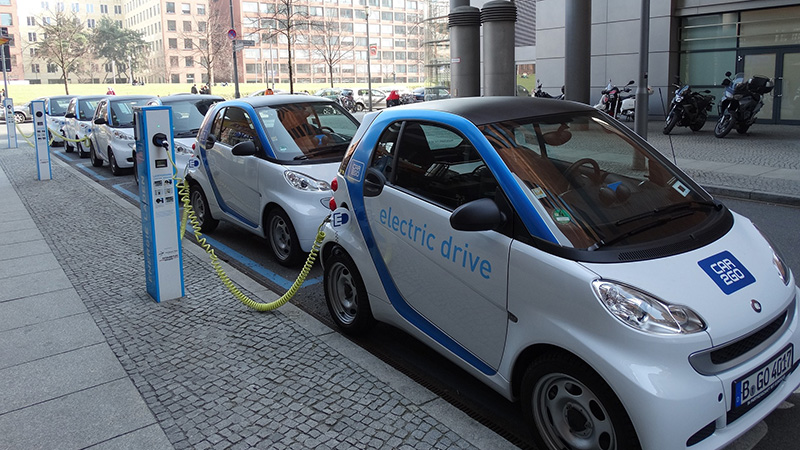Oil demand will peak in the 2020s and then the industry will start to shrink, Statoil chief executive Eldar Saetre told an audience of industry executives in London on Monday.
The Norwegian struck a pessimistic note at the annual Oil and Money conference, which traditionally offers upbeat assessments on the hydrocarbon sector.
But his logic was simple: transport accounts for 55% of oil use, and the electric vehicle industry is starting to gather pace meaning a once-guaranteed market could start to fade – fast.
According to an International Energy Agency (IEA) report in June, there are now more than one million electric cars on the roads, with sales up 70% from 2014 levels.
Oil demand will peak in 2020s "then we'll have a shrinking oil industry" as vehicles are electrified, says Statoil boss Eldar Saetre #OM2016 pic.twitter.com/LFAQaPVkzR
— Andrew Ward (@andrew_ward1) October 18, 2016
Range anxiety is also waning, reports the Carbon Brief website, as electric batteries get larger and more efficient, meeting 98% of daily driving needs.
It’s still tiny compared with the numbers of cars with traditional combustion engines, and the charging infrastructure remains mixed. The US, China, Norway and Netherlands dominate growth.
Speaking at an event held by Bloomberg earlier this month, BP chief economist Spencer Dale laughed off the threat: “It’s not a game changer over 20 years, even with aggressive electric vehicle penetration,” he said.
Still, it’s a development that last month led analysts at BHP Billiton to brand 2017 as the year when “the electric car revolution really gets started”.
By 2035 they believe 140 million of cars on the road will be electric, about 8% of the global fleet, displacing 2.3 million barrels of oil a day – equal to about 2% of demand.
“Our projections in this regard put us firmly at the ‘green’ end of the spectrum, well above the levels projected by ‘traditional’ industry consultants,” reads the BHP report.
#OPEC Watch: #SaudiArabia #oil minister says market "clearly rebalancing", industry at end of "considerable downturn" #OM2016 #OOTT #OPEC pic.twitter.com/wmPZ74xTcP
— Javier Blas (@JavierBlas) October 19, 2016
Well – not quite. The team at Bloomberg New Energy Finance reckons electric vehicles could account for 35% of car sales and displace 13 million barrels of oil by 2040.
This week Fitch Ratings issued a warning that global credit markets covering a quarter of outstanding corporate bonds were potentially threatened by the rise of Tesla, Toyota Prius and other EV makers.
Fitch cautions that the switch from oil to electric won’t be overnight, largely due to high battery prices, but predicts a quarter of the global car fleet could be weaned off oil by 2035.
Even that could be underestimating the growth trajectory, suggest the report’s authors, considering battery prices fell 35% over the last 12 months.

(Pic: Bloomberg New Energy Finance)
“We believe it will be important for oil companies to react early, and we will continue to evaluate their strategies for doing so even though the changes discussed here would occur well beyond our rating horizon,” reads its summary.
“Many are already taking initial steps such as diversifying into batteries or renewables or focusing more on natural gas, and many are actively participating in the debate around future energy sources.”
PwC’s upcoming Low Carbon Economy Index will also suggest change is afoot with most governments developing plans to decarbonise electricity and electrify transport.
“Electric vehicles are potentially disruptive in the medium term, but inevitably there’s a time-lag between EV sales and emissions reductions as petrol and diesel cars sold today will be on the road for the next 15 years,” said PwC director Jonathan Grant, lead author of the LCEI.
